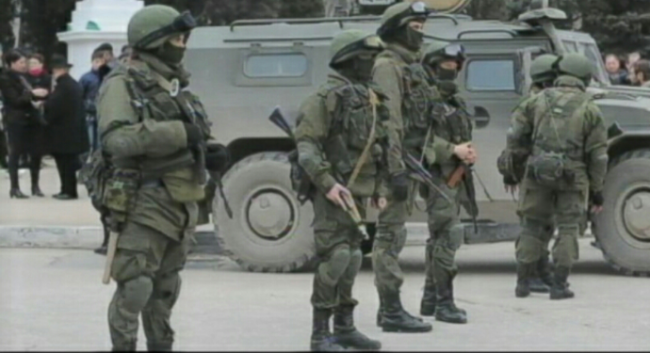WASHINGTON — After Russia’s military incursion into Ukraine, the G8 might become the G7 again.
Russia is set to host the next summit of the Group of Eight — the (mostly) western economic powers of the U.S., UK, France, Germany, Canada, Italy, Japan and Russia — in Sochi in June, and the U.S. has broken off its participation in planning meetings in protest of Russian forces’ presence in Crimea, where they have reportedly surrounded military bases.
About 6,000 Russian forces have “operational control” of the Ukrainian peninsula of Crimea, a senior U.S. official told reporters.
After a U.S.-led push, all members but Russia have announced they will boycott planning meetings for the Sochi summit.
In a joint statement disseminated by the White House on Sunday, the leaders of the U.S., UK, France, Germany, Canada, Italy, Japan all pledged “to suspend our participation in activities associated with the preparation of the scheduled G-8 Summit in Sochi in June, until the environment comes back where the G8 is able to have meaningful discussion.” They also “condemn[ed] the Russian Federation’s clear violation of the sovereignty and territorial integrity of Ukraine.”
U.S. officials offered not-so-veiled threats that the G8 could kick Russia out altogether.
The incursion “puts at question Russia’s capacity to be within the G8,” Secretary of State John Kerry told ABC’s George Stephanopoulos on “This Week” Sunday morning.








